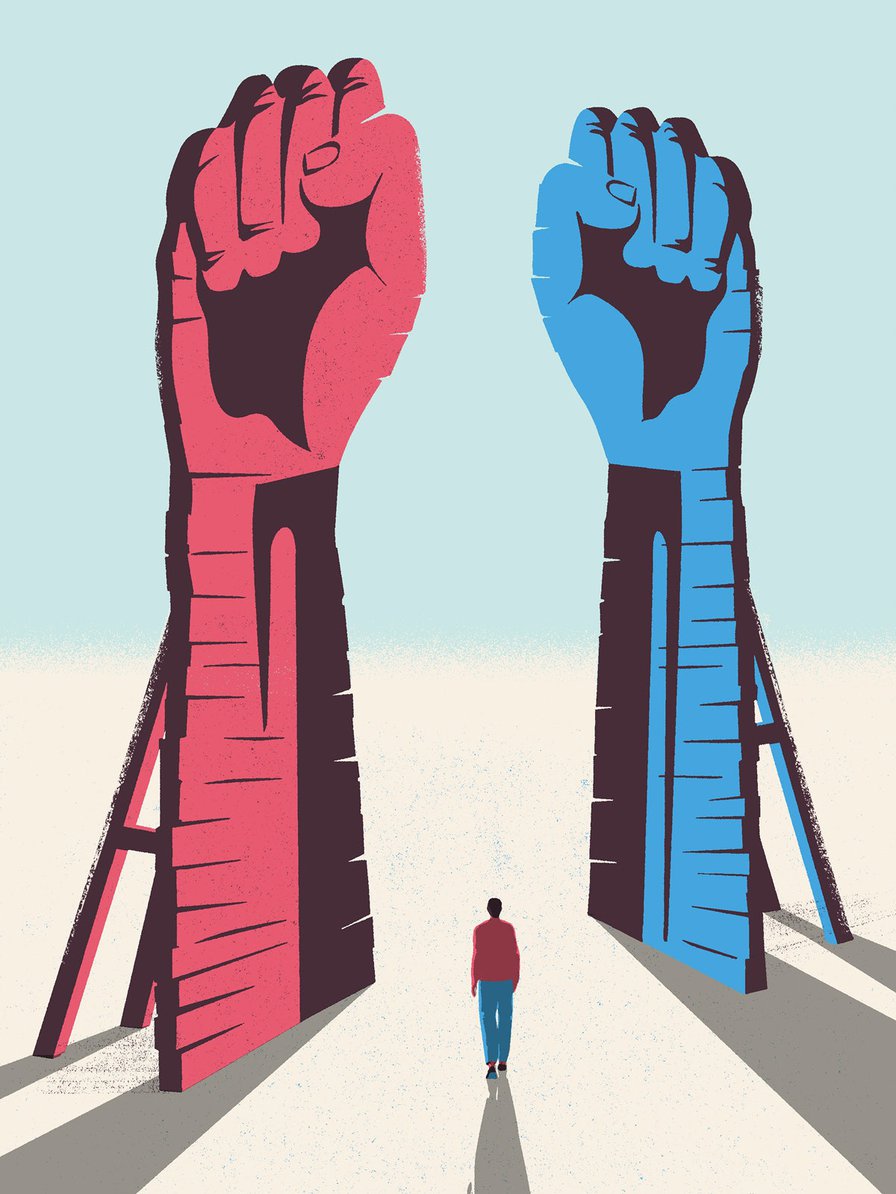We’re Not Polarized Enough | The New Republic

my notes ( ? )
Many of our political forebears pined for more polarization... fretted about the incoherence of their identities ... There were liberal Republicans ... opponents of civil rights and big government in the Democratic Party... 1976 ... Richard Nixon... proposed a universal health care ... created the Environmental Protection Agency...
tighter ideological identification began ... with the passage of civil rights ... late 1950s and 1960s... facets of identity—gender, sexuality, religion, locality—... came to influence partisan identification...
Today, American voters and politicians are grouped fairly neatly into two clear camps ... Fear and mutual antipathy... locked into our political identities ... no candidate... can force us to change our minds...
as ... coronavirus cases ... climbed, Democrats worried ... more than Republicans... shaped ... responses of policymakers... [and] behavior of Americans on the ground ...
Why We’re Polarized ... explain how we arrived here and ... our way forward. It does not fully succeed: The sources ... more complicated ... path beyond ... more fraught ... If polarization inhibits our ability... to act commonsensically ... United States ... will fracture ... unstable...
To appeal to a yet more polarized public... institutions must polarize further... faced with yet more polarized institutions, the public polarizes further ... exacerbated by the growing demographic divide between the parties ... political conflict bleeds into social life... political differences yield personal hostility ... politics now links up our multiple identities ... threat that activates one activates all...
Klein focuses ... behavioral dynamics ... evolutionary psychologists... To be part of a group... meant survival... once [group] identities take shape, intense competition between groups follows...
[But shouldn’t this effect] politics everywhere?... Elsewhere, the ideological divides between major parties are less deep, sociocultural identification ... less strong, and functional relationships between multiple parties are common... Is the American brain different? ...
Our sense of political reality is incomplete if we believe that a conservative is a specific kind of person ... betrayed by a set of simple signifiers ... Are those dispositions hardwired, or do they emerge from our circumstances? ...
more Americans identify as independents than as Democrats or Republicans ... refuse to align themselves with either party ... nearly half the country prefers politicians who make compromises with people they disagree with ...
the only way to depolarize our institutions ... win big against those who want to keep them undemocratic ... reformers successfully marshaling the forces driving group identity ... convincing Americans not to retreat from national politics but to think even more broadly and abstractly about where this country ought to go
Read the Full Post
The above notes were curated from the full post newrepublic.com/article/157599/were-not-polarized-enough-ezra-klein-book-review.Related reading
More Stuff I Like
More Stuff tagged identity , us , polarization , covid19
See also: Social Media Strategy , Surveillance Capitalism, Social media and Polarisation (Overview) , Social Web , Politics